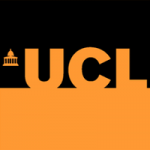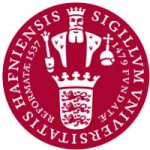项目介绍
Overview
In partnership with our NIHR Biomedical Research Centres and Unit, PhD projects will be strongly multi-disciplinary, bridging the gap between engineering, clinical sciences and industry. Over 100 non-clinical and clinical scientists across UCL will partner to co-supervise a new type of individual, ready to transform healthcare and build the future UK industry in this area.
Research areas
Our Methodological Research Portfolio is focussed around three major themes:
Imaging Technologies
- Imaging Devices
- Image Acquisition
- Image Reconstruction
Image Computing
- Image Analysis
- Computational Modelling
Integrated systems
- Actionable Analytic Systems
- Interventional Systems
Our Enabling Technology Portfolio includes:
- AI and Machine Learning
- Data Science and Health Informatics
- Robotics and Sensing
- Human-Computer Interaction
Finally, the eight clinical research programmes in our Translational Portfolio are:
- Cancer Imaging
- Cardiovascular Imaging
- Infection and Inflammation Imaging
- Neuroimaging
- Ophthalmology Imaging
- Paediatric Imaging
- Perinatal Imaging
More information can be found on the department website: Medical Imaging MRes + MPhil/PhD
About this degree
The MRes year consists of compulsory units and transferable skills (135 credits) and further optional modules (45 credits). The MRes project is a compulsory element and often (but not necessarily) forms the basis for PhD research. Students will be provided with a list of available projects before enrolment which will be subject to a selection process.
Advanced electives are available to all students in years two and three (MPhil and PhD) and are designed to enhance learning and skills.
Students are registered for the MPhil degree from year two and transfer to PhD status.
Please note that the list of modules given here is indicative. This information is published a long time in advance of enrolment and module content and availability is subject to change.
Additional costs
For more information on additional costs for prospective students please go to our estimated cost of essential expenditure at Accommodation and living costs.
Accessibility
Details of the accessibility of UCL buildings can be obtained from AccessAble accessable.co.uk. Further information can also be obtained from the UCL Student Support & Wellbeing team.
Funding
Please visit the EPSRC Centre for Doctoral Training in Intelligent, Integrated, Imaging in Healthcare (i4Health) for current funding information.
For a comprehensive list of the funding opportunities available at UCL, including funding relevant to your nationality, please visit the Scholarships and Funding website.
Careers
As a multi-disciplinary subject at the interface of physics, engineering, life sciences and computer science, our postgraduate students have a diverse range of options upon graduation. Many choose to continue in academia through the subsequent award of a PhD studentship or a postdoctoral research post. Another common career route is employment in industry where newly-acquired skills are applied to science and engineering projects within multi-national medical device companies, or alternatively, within small-scale start-up enterprises. A substantial number of graduates also enter the NHS or private healthcare sector to work as a clinical scientist or engineer upon completion of further clinical training.
Employability
Postgraduate study within the department offers the chance to develop important skills and acquire new knowledge through involvement with a team of scientists or engineers working in a world-leading research group. Graduates complete their study having gained new scientific or engineering skills applied to solving problems at the leading edge of human endeavour. Skills associated with project management, effective communication and teamwork are also refined in this high-quality working environment.
Networking
Supervision and mentorship are available from scientists and engineers who have collaborated nationally and internationally across clinical, industrial and academic sectors. This provides natural opportunities to work in collaboration with a variety of external partners and showcase output at international conferences, private industry events and clinical centres to audiences of potential employers. Moreover, the department holds close working relationships with a number of charitable, research council and international organisations, for example, in new projects involving radiotherapy and infant optical brain imaging in Africa.
Why study this degree at UCL?
The programme sits within i4health, a new centre for doctoral training focused on intelligent, integrated imaging in healthcare. The i4health centre aims to transform patient care through next-generation imaging tools and analysis.
UCL’s internationally leading positions in medical imaging and devices, data science and AI, robotics, and human-centred design, together with unique access to healthcare data and equipment, ideally place our centre to lead this transformation.
UCL has significant activity in medical and biomedical imaging and several centres of excellence in their own right, and receives significant funding for its high-quality research. The Engineering and Physical Sciences Research Council (EPSRC) is a British Research Council which funds the i4health centre among other centres for doctoral training. UCL currently holds over 40% of the EPSRC funding portfolio in medical imaging — more than any other university.
Department: Medical Physics & Biomedical Engineering
What our students and staff say
Staff review
“With its location in the heart of London, and close proximity to a wide range of internationally leading research and clinical institutes, UCL is an ideal centre for multidisciplinary work, and our projects have benefitted hugely from this. “
PROFESSOR CLARE ELWELL
CoMPLEX, Medical Physics and Bioengineering, Centre Doctoral Training in Biomedical Imaging
Professor of Medical Physics
Application and next steps
Applications
Students are advised to apply as early as possible due to competition for places. Those applying for scholarship funding (particularly overseas applicants) should take note of application deadlines.
This programme requires two references. Further information regarding references can be found in our How to apply section.
Application deadlines
All applicants30 July 2021
Deadlines and start dates are usually dictated by funding arrangements so check with the department or academic unit to see if you need to consider these in your application preparation. In most cases you should identify and contact potential supervisors before making your application. For more information see our How to apply page.
For more information see our Applications page.
录取要求
-
A minimum of an upper second-class UK Bachelor’s degree in Physics, Engineering, Computer Science, Mathematics, or another closely related discipline, or an overseas qualification of an equivalent standard. Knowledge and expertise gained in the workplace may also be considered, where appropriate.
联系方式
电话: +44 (0) 20 7679 2000相关项目推荐
KD博士实时收录全球顶尖院校的博士项目,总有一个项目等着你!





